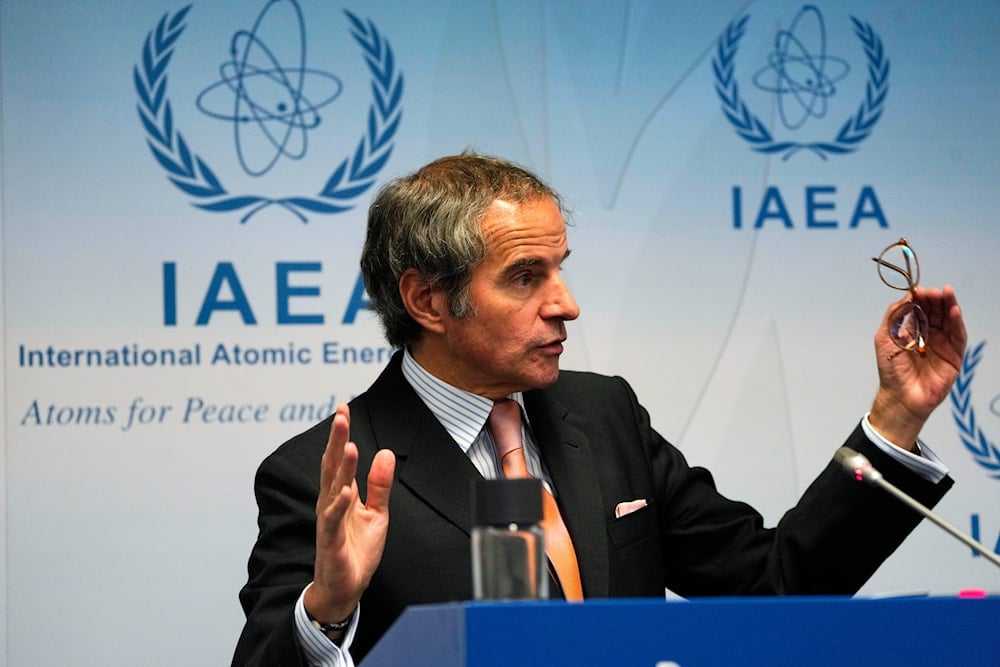Iran warns against politicization of IAEA during critical period
Iranian FM Abbas Araghchi urges IAEA chief Rafael Grossi to prevent politicization of the agency ahead of a key Board of Governors meeting, warning of consequences if Western powers push for hostile measures.
-

Rafael Mariano Grossi, the director-general of the International Atomic Energy Agency, speaks to journalists attending a weeklong seminar at the agency in Vienna, Austria, on May 28, 2025. (AP)
Iranian Foreign Minister Abbas Araghchi held a phone call with International Atomic Energy Agency (IAEA) Director General Rafael Grossi, warning against the misuse of the UN nuclear watchdog for political ends.
During the call, Araghchi emphasized that Tehran “demands that the Agency reflect the facts in a manner that prevents certain parties from exploiting it to advance their political agendas.”
He further urged Grossi to highlight “Iran’s full cooperation” during the upcoming IAEA Board of Governors meeting next week, stressing the importance of preserving the Agency's technical impartiality.
The senior Iranian diplomat cautioned that “any political move against Iran” must be avoided, and that “Iran will respond to any unlawful action by European countries or parties attempting to turn the Agency into a tool for achieving their objectives.” He concluded by stating that “these parties will bear responsibility for the consequences of their actions.”
Read more: Iran rejects IAEA report, says it is based on forged Israeli documents
Sharp increases in enriched stockpile
The conversation comes amid growing tensions between Iran and Western powers over its nuclear activities. A confidential IAEA report released on Saturday claimed that Iran had carried out undeclared nuclear work at three sites — Lavisan-Shian, Varamin, and Turquzabad — tied to a clandestine program active until the early 2000s. The Agency also reported a sharp increase in Iran’s stockpile of uranium enriched to 60%, which now stands at 408.6 kilograms — a level nearing the threshold for weaponization if enriched further.
Meanwhile, diplomatic efforts continue in parallel. The United States, via a proposal mediated by Oman, has offered a revised nuclear deal under which a regional consortium would handle uranium enrichment for civilian use. The plan would place enrichment under IAEA and U.S. oversight, but Tehran remains firm in its insistence on retaining enrichment rights, a key sticking point that has complicated negotiations.
Read more: Iran renounces 'domination', 'zero enrichment' rhetoric in US talks

 2 Min Read
2 Min Read









